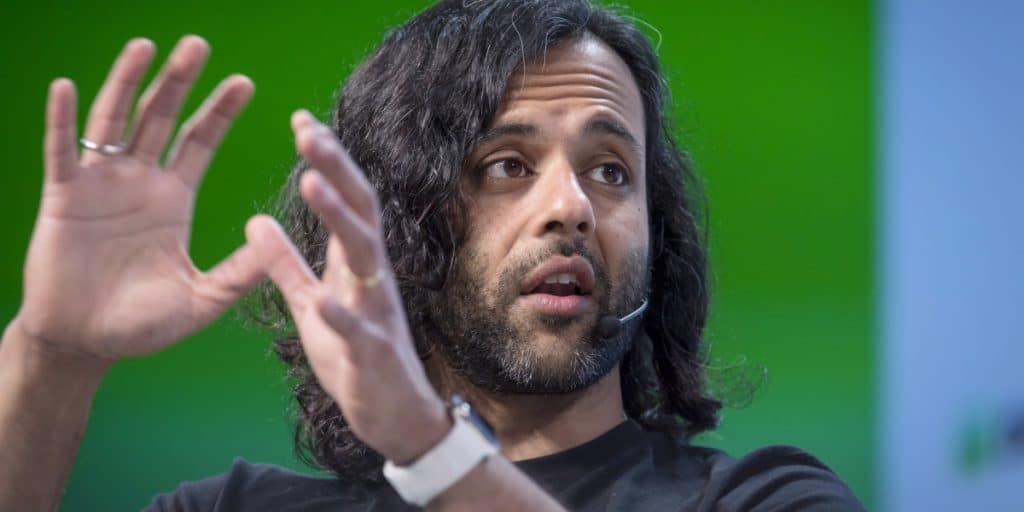Robinhood’s stock exchange company is venturing beyond the United States for the first time — to the land of Robin Hood.
Starting Wednesday, customers in Britain will be able to sign up to get early access to Robinhood’s stock trading service, which is expected to go live in the first quarter of 2020.
The no-fee trading app introduced by Robinhood in 2015 has become popular among millennials in the U.S., where it has expanded quickly to six million subscribers. The company’s latest funding round of $323 million in July priced $7.6 billion for the venture.
The decision to start the firm in the U.K., the land of a folk hero, came after the Financial Ethics Authority, the U.K. Financial Markets Watchdog, allowed Robinhood to act as a broker in the U.K. It was in August.
Wander Rutgers, President of Robinhood UK, said he was “super-excited” to reveal the U.K. launch.
In the U.K., Robinhood will sell its main commodity promising unrestricted commission-free trading with no minimum amount needed in the account. There will be a platform for U.K. customers, but Menlo Park, a California-based firm, will not be selling direct stock trading on the London Stock Exchange. Until now, U.K. consumers will only be able to purchase or sell stock traded in the U.S. exchange market.
This comprises more than 3,500 U.S .- listed companies such as Amazon, Apple, and Nike, plus more than 1,000 foreign shares, including household names such as Burberry, BMW plus Barclays, Rutgers says. Customers do not have to pay taxes to exchange their pounds to dollars.
The app provides a range of free tools to help consumers manage the industry, including links to company news stories and videos, analyst reviews and earnings reports, and watch lists.
By charging $5 a month, consumers can switch to Robinhood Gold, which provides services such as accurate market analysis, in-depth analyst reports, and more comprehensive resources such as margin investing for seasoned buyers. Robinhood also hopes to introduce the U.K. daily financial news podcast. Customers will access their wallets from their smartphones using their debit card, Apple Pay, or Google pay.
Rutgers said, “As we look ahead, we will talk to customers and try to understand whether there are other things that we want to add, it might be direct access to U.K. markets.”
Robinhood will not offer investment options in the U.K., or trading in cryptocurrencies that it offers in some U.S. states.
The business enters a market where there are still commission-free stock exchange companies such as Exchange 212 and Freetrade, as well as existing companies such as Hargreaves Lansdown, who charge a fee on each sale. Rutgers said that Robinhood’s technology, consumer attention, and the confidence that it built up among U.S. users set it apart from the competition.
He said that Robinhood sees the potential of its product in the U.K., especially among millennials who might have been turned off by the expense of investing in the stock market.
“The United Kingdom isn’t yet a market of investors and we see that in a lot of people that we spoke to. They see investing as something that is costly, that’s expensive, or something that just doesn’t feel like something for them. At the same time, we see that interest rates are as low as they have ever been and most people who have money in their … bank savings account are losing money against inflation,” he said.
But people were interested in beginning to invest, he added. “In research, we’ve found about a quarter of millennials with some sort of investment. It is the demographic that we understand very well, at least in the U.S., and we’ve been representing it client base for years now … this is a market that we’re still discussing in the U.K.
“One of the important reasons why we picked London as the place for our office is of-course the tech talent here, the market for talent is great … currently, we have about 10 people in the U.K. We aim to grow that over time. We are hiring,” he said.
Robinhood, created in 2013 by Vlad Tenev and Baiju Bhatt, earns money from membership fees for its premium service, rebates charged by market owners to U.S. brokerages for the orders they deliver, and interest on uninvested funds. Being a private corporation, Robinhood does not make public any data on its sales or gains or losses, and Rutgers refused to comment on its proposals for an IPO.
In October, Robinhood announced proposals in the U.S. for a bank account-like app that will cost customers 2.05 percent interest and provide no-fee debit card service. The release of the product, called “Cash Management,” comes after federal regulators forced Robinhood to drop an agreement in December to pay a market-leading 3% interest rate.
The misstep came after regulators concluded that the mutual account balance plan would be unavailable for depositor protection and that Robinhood had refused to clear the policy with them.
The cash management service will not be available in the United Kingdom.
Check More Content Down Below –
